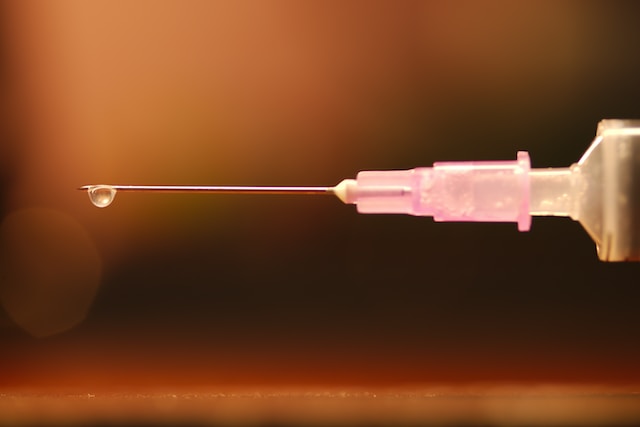Anyone who remembers the days of Flamel and Sky Pharma knows that the promise of nano drug delivery never really panned out for retail investors. These two firms promised to transform healthcare by using nanotechnology to deliver drugs more effectively. The technology moved on, while the supposed pioneers didn’t. The first nanotechnology-based cancer drugs to pass regulatory scrutiny were Doxil by Johnson and ABRAXANE by Bristol Myers Squibb, both of which were followed by a dozen more nano-enabled therapies for cancer alone. If you’re a firm that’s created a nanotechnology drug delivery platform, you’re not alone.
That brings us to Selecta Biosciences (SELB), a company we last looked at nine years ago prior to their initial public offering (IPO) which debuted in 2016 and raised $70 million. Since then, shares have lost 89% of their value giving the company a current market cap of around $229 million. That dismal performance doesn’t seem to match their consistent quarterly revenue growth.

To solve this puzzle, let’s start by looking at how their drug pipeline has progressed over the past nine years.
The Ever-Changing Pipeline
It’s a big red flag for drug development companies when large partners back out of collaborations and hand over everything that was being worked on. In 2012 Selecta entered into a deal with Sanofi, the world’s sixth-largest company by prescription sales, to discover antigen-specific immunotherapies for peanut allergies. In May 2015, Sanofi exercised an option to extend the agreement to celiac disease. In November 2016, Sanofi decided to exit the collaboration following a strategic review of its R&D portfolio.

Nine years ago, we were getting excited about the company’s initial product candidate, a first-in-class synthetic vaccine against nicotine for smoking cessation and relapse prevention. The U.S. National Institutes of Health (NIH) had provided $11 million in grants over four years to fund the development of the therapy which doesn’t seem to have gone beyond Phase 1 trials which concluded in 2013. A 2014 Boston Business Journal article that discussed the grants also mentioned the following:
The 6-year-old firm also announced a $1.25 million grant from The Bill and Melinda Gates Foundation for malaria vaccines, and an exclusive license with Chinese biotech, 3SBio, for a drug called pegsiticase which has shown effectiveness in reducing plasma uric acid levels in gout patients in Phase 1 clinical studies. The resulting combination drug, SEL-212 would be the first non-immunogenic version of a type of drug called uricase.
Credit: Boston Business Journal
That’s the first mention we see made of SEL-221 which is the leading candidate for Selecta Biosciences (more on this in a bit).
As the years passed by, SELB’s pipeline changed to accommodate their partners du jour. In 2017, all their previous partnerships had disappeared while a new one emerged – Spark Therapeutics.

Spark Therapeutics exited earlier this year, while the current pipeline bears only the faintest resemblance to its former promises with a whole slew of new partners on board.

The company’s lead drug candidate, SEL-212, may finally show some signs of promise after eight years of development. In June 2020, A $5.6 billion Swedish pharmaceutical company called Sobi was granted an exclusive, worldwide (except Greater China) license to develop, manufacture, and commercialize the company’s SEL-212 drug candidate which is a treatment for chronic refractory gout. Sobi agreed to reimburse Selecta Biosciences for all budgeted costs incurred to complete development of SEL-212, including but not limited to costs incurred while conducting and completing their two Phase 3 DISSOLVE trials.

An interesting article by Evaluate Vantage in October 2020 (three months after the Sobi / Selecta Biosciences partnership was announced) talks about how SEL-212 was being compared head-to-head with the only approved therapy for chronic refractory gout, Horizon Pharma’s KRYSTEXXA. Some patients treated with KRYSTEXXA develop anti-drug antibodies, which can limit the effectiveness of treatment. The appeal of SEL-212 is that the nanotechnology-enabled drug delivery platform it utilizes doesn’t have that problem. That was the idea anyways, but things didn’t go so well for SEL-212 in the comparison trial.

Here’s how the article concluded regarding the two Phase 3 studies – DISSOLVE I and DISSOLVE 11 – which are currently ongoing for SEL-212.
Both pivotal studies pit SEL-212 against placebo, so hopes of success should be relatively high, and indeed SEL-212 might well be approvable. But without a demonstrated advantage against an established market leader it will have a mountain to climb.
Credit: Evaluate Vantage
In Q1-2023 we can expect topline data for SEL-212 Phase 3 trials which should provide some indication as to whether this therapy will ever be commercialized. Even if that happens, it remains to be seen how successful it will be against an entrenched competitor it wasn’t able to best in a comparison trial.
As for the other compounds on the Selecta Biosciences pipeline, anything being developed in-house without a partner should be viewed with a great deal of suspicion. The amount of time, money, and resources needed to bring a drug to market practically demands partnerships to help foot the bill. In the absence of partners, companies often need to pursue other avenues to raise money – like diluting existing shareholders.
The Effects of Dilution on Selecta Biosciences Stock
The latest filing document for SELB talks about how they’ve made arrangements with some financial institutions to sell shares. And sell shares they have, something that has helped fund their development efforts over the past decade. Long-term shareholders should reflect on just how much they’ve been diluted over time.
The June 2016 IPO was priced at $14 per share at a time when the firm had around 10.5 million shares outstanding (as of the end of 2016). That’s an implied market cap of $147 million. So, with shares trading at $1.50 today, how is it possible for Selecta Biosciences to command a market cap of $229 million? The answer: excessive dilution.

Let’s put this into perspective. If you bought a share of Selecta Biosciences at the time of the IPO for $14 and nothing else changed except the impact of dilution, the value of your share would have fallen to 96 cents just based on dilution alone. Despite all the failed partnerships and time spent spinning wheels, investors still ascribe a higher valuation to the company than they did at the time of the IPO. It seems unlikely long-term shareholders will appreciate this fact, but it just goes to show how important it is to pay attention to dilution which comes in many forms.
Shareholders of Ginkgo Bioworks (DNA) might be interested to know about the second collaboration that was announced between these two firms earlier this year which involves milestone payments that might incur even further dilution.
Under the terms of the collaboration, Ginkgo is eligible to earn upfront research and development fees and milestone payments, including certain milestone payments in the form of Selecta common stock. In addition, Ginkgo is eligible to earn clinical, regulatory and commercial milestone payments of up to $200 million in cash for each of a specified number of products, which have the potential to total, in the aggregate, up to $1.1 billion.
Credit: Selecta Biosciences
The silver lining for Selecta Biosciences is that now they’re finally seeing some revenues, despite they’re coming from a few partners (mostly Sobi and some from Sarepta). While revenues appear to be consistently growing over time, it’s questionable as to whether that consistency will continue based on their business model.
Of the $400 million in R&D Selecta has burned through since inception, the majority has been spent on the development of SEL-212. The results to be announced in Q1-2023 are critically important to show that some progress is being made with a lead candidate they’ve been trying to develop for the past eight years. In the meantime, Horizon is moving ahead with other plans. They’re working with the FDA to expand the label for KRYSTEXXA plus methotrexate which can help to prevent anti-drug antibodies, resulting in a durable response to therapy. Should that happen, it’s hard to see what leg SEL-212 will have left to stand on.
Conclusion
There is no shortage of great companies out there taking a drubbing in today’s bear market which offer compelling ways to purchase growth at discounted prices. Selecta Biosciences has been spinning wheels for far too long as existing shareholders see their equity diluted more and more as time goes on. Partners come and go while the lead candidate will see an update in Q1-2023. Too much uncertainty exists around what that outcome might look like, while revenue growth gives the false impression of consistency as their revolving door of partnerships implies otherwise.
Tech investing is extremely risky. Minimize your risk with our stock research, investment tools, and portfolios, and find out which tech stocks you should avoid. Become a Nanalyze Premium member and find out today!

















